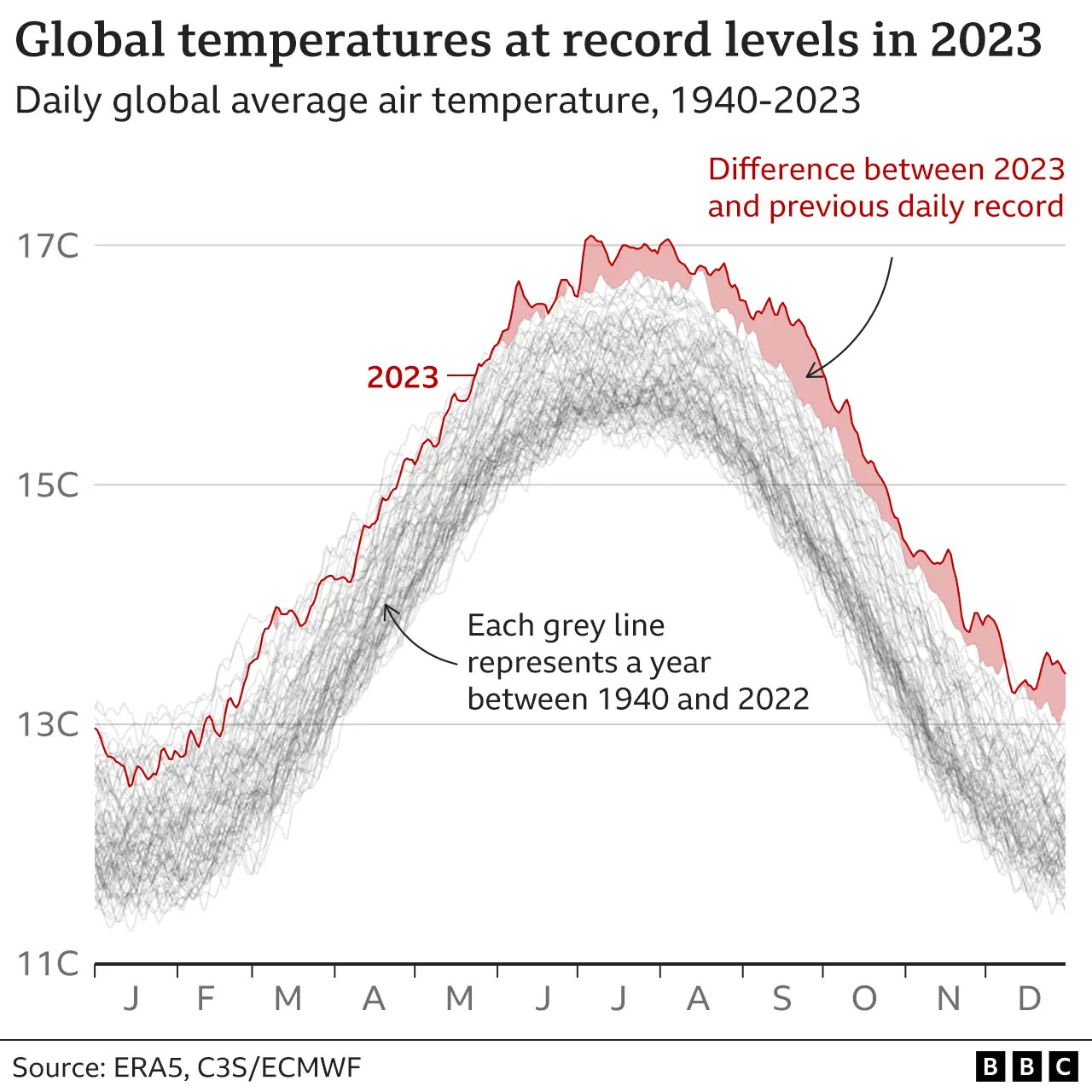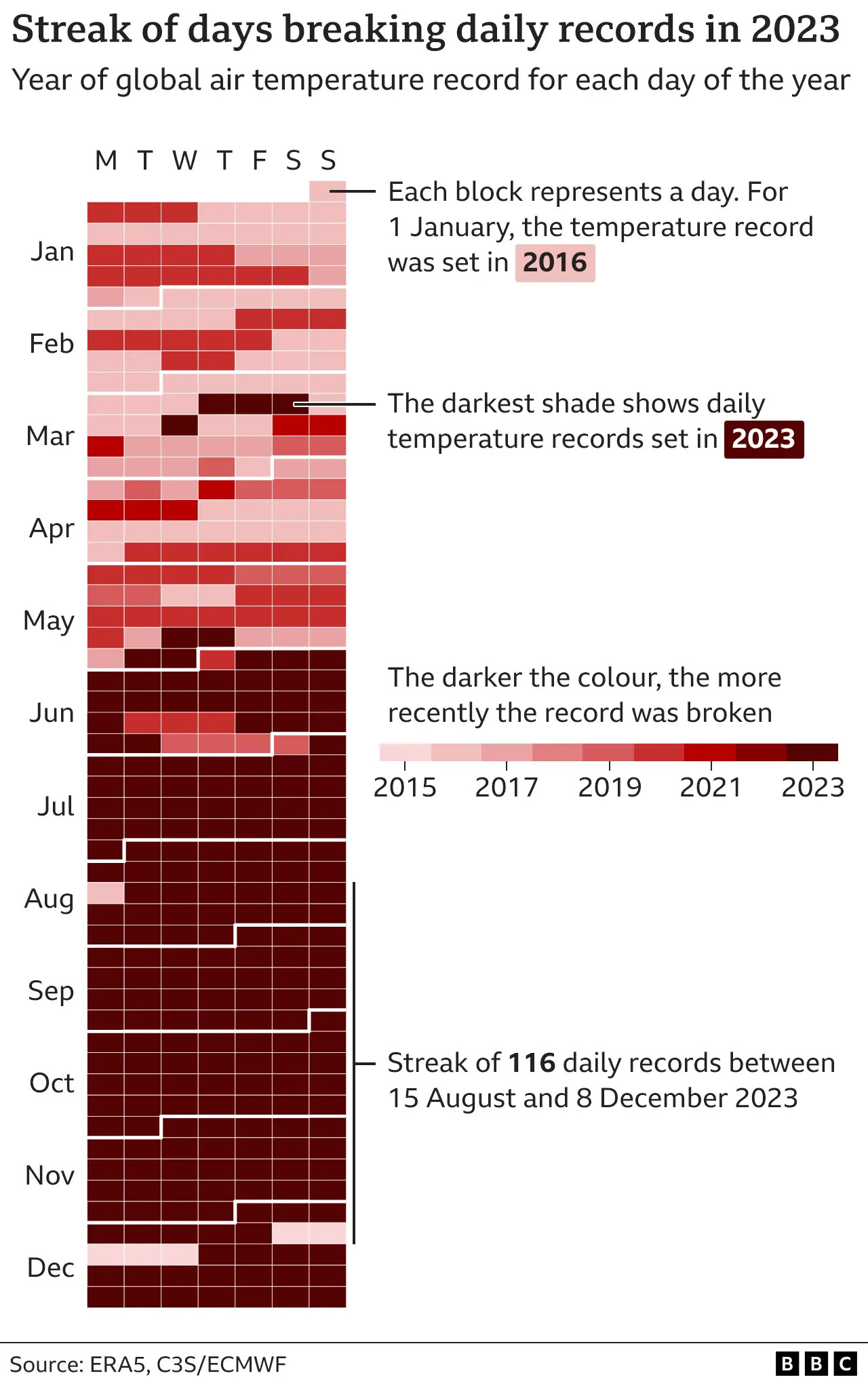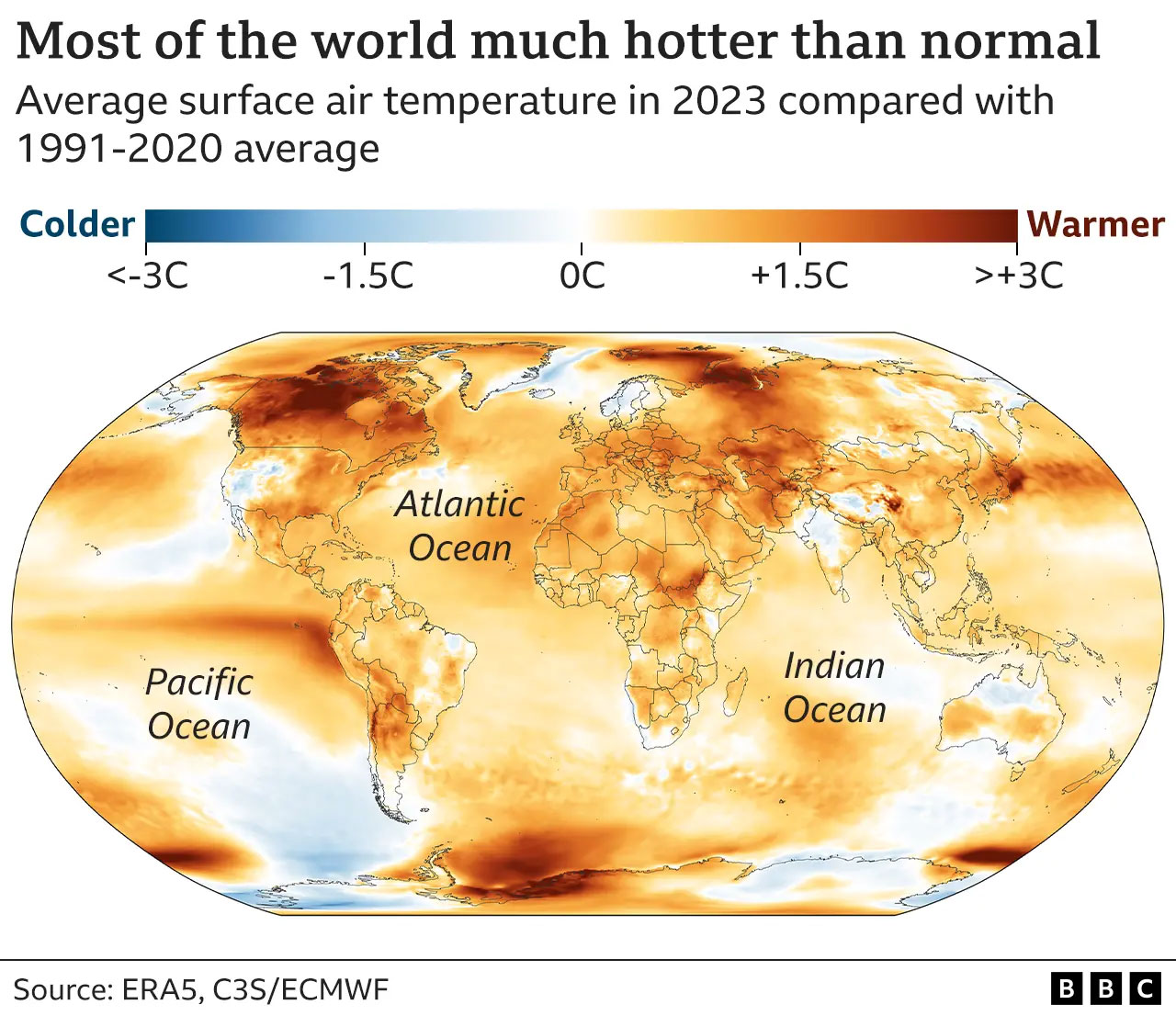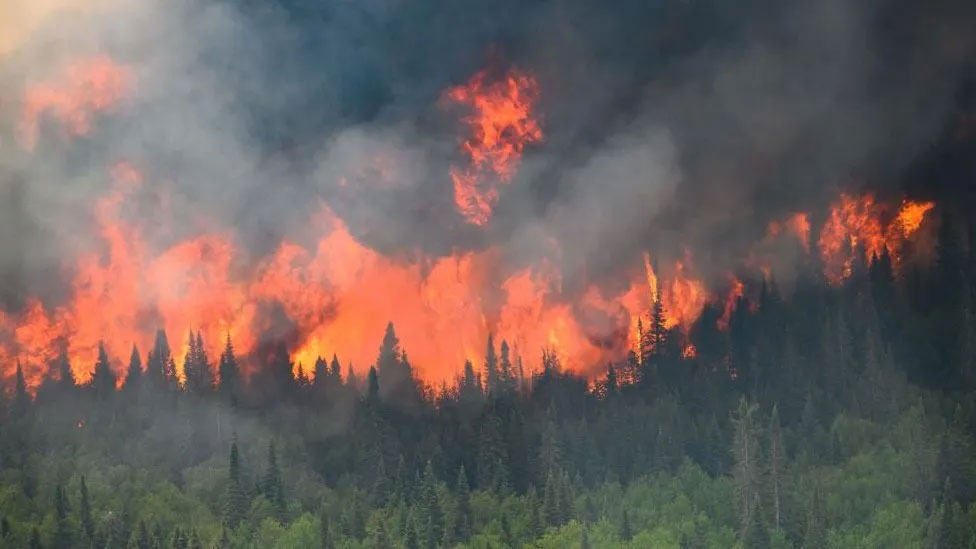Climate change: 2023 confirmed as hottest year ever recorded — Will 2024 be even hotter?
Human-induced climate change and El Niño weather phenomenon contributed to this unprecedented warmth
January 09, 2024

The year 2023 has officially secured its place as the hottest on record, surpassing previous temperatures by approximately 1.48 degrees Celsius, according to the EU's climate service.
Human-induced climate change and the influence of the El Niño weather phenomenon contributed to this unprecedented warmth, with global air and sea surface temperatures consistently setting new highs.
From July onward, almost every day witnessed a new global air temperature record, creating an exceptional and prolonged spell of warmth.

The UK, too, experienced its second warmest year on record. The significance of the records broken during 2023 is highlighted by their substantial margins, causing concern among scientists and raising questions about the unpredictable behaviour of Earth's climate.
The impact of this record warmth extended worldwide, intensifying extreme weather events. Heatwaves, wildfires, droughts, and floods occurred on a larger scale and at unusual times, causing widespread destruction.

The effects were not limited to air temperature alone, with Antarctic sea ice reaching alarming lows, Arctic sea ice below average, and glaciers in North America and the European Alps experiencing extreme melting.
The year 2024 presents the potential to surpass 2023's records, with uncertainties linked to the unusual behaviour of the current El Niño.
This unpredictability raises concerns about the possibility of exceeding the crucial 1.5-degree Celsius warming threshold set by nearly 200 countries in the 2015 Paris Agreement.

Although a single-year breach wouldn't violate the agreement, it underscores the alarming trajectory toward surpassing long-term global warming targets.
As the world grapples with the consequences of rising temperatures, the COP28 climate summit recently emphasised the urgent need to address fossil fuel emissions, acknowledging them as the primary driver of global warming.

While the climate deal fell short of mandatory commitments, there is optimism that progress in renewable energy and electric vehicles can contribute to mitigating the impacts of climate change, emphasising the significance of every fraction of a degree in temperature control.









